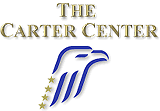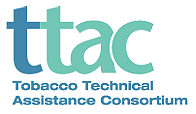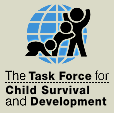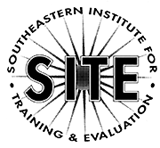The U.S. Centers for Disease Control and Prevention (CDC)
The U.S. Centers for Disease Control and Prevention (CDC) is the federal government's premier agency devoted to disease prevention and control, with emphasis in epidemiology, environmental health, health safety, and health education. CDC headquarters is located less than one block from the Rollins School of Public Health. More than one hundred CDC scientists hold adjunct faculty appointments in Rollins. Many students work at CDC in paid internships through various ongoing programs, find opportunities for thesis research with CDC scientists, and use the libraries and data sets resulting from CDC's national surveys.http://www.cdc.gov/
American Cancer Society
 The American Cancer Society (ACS) is the world's largest volunteer disease prevention agency dedicated specifically to cancer prevention and health promotion. Several collaborative research projects with a shared common interest in early cancer detection and prevention make the ACS a valuable resource to the RSPH.
The American Cancer Society (ACS) is the world's largest volunteer disease prevention agency dedicated specifically to cancer prevention and health promotion. Several collaborative research projects with a shared common interest in early cancer detection and prevention make the ACS a valuable resource to the RSPH.
http://www.cancer.org/
The Carter Center
 The Carter Center addresses national and international issues of public policy. Drawing on the resources of virtually the entire Emory community, including former President Jimmy Carter (now a University distinguished professor) and former CDC Director William Foege (now a professor in the RSPH's Department of International Health), and bringing to campus a wide range of international scholars, statesmen, business executives, and other professionals. The Carter Center provides leadership in international health programs such as disease eradication, child survival, and world hunger. The associated Jimmy Carter Library, with more than 27 million documents, photographs, films, and mementos of the Carter presidency, serves scholarly researchers and, through its museum, the general public.
The Carter Center addresses national and international issues of public policy. Drawing on the resources of virtually the entire Emory community, including former President Jimmy Carter (now a University distinguished professor) and former CDC Director William Foege (now a professor in the RSPH's Department of International Health), and bringing to campus a wide range of international scholars, statesmen, business executives, and other professionals. The Carter Center provides leadership in international health programs such as disease eradication, child survival, and world hunger. The associated Jimmy Carter Library, with more than 27 million documents, photographs, films, and mementos of the Carter presidency, serves scholarly researchers and, through its museum, the general public.
http://www.cartercenter.org/
Center for Public Health Preparedness and Research
The Center for Public Health Preparedness and Research (CPHPR) provides resources and expertise to train public health students and professionals in Georgia to address the threats posed by emerging infectious diseases, including bioterrorism. Faculty and students affiliated with the CPHPR conduct research and develop policy to enhance public health preparedness in Georgia and beyond.
http://web1.sph.emory.edu/CPHPR
Georgia Center for Cancer Statistics
The Georgia Center for Cancer Statistics (GCCS) is a research unit devoted to cancer surveillance, cancer epidemiology, and cancer registry training. It is located within the RSPH Department of Epidemiology. Surveillance activities include operation of both the Metropolitan Atlanta and Rural Georgia Surveillance Epidemiology and End Results (SEER) Program, funded by the National Cancer Institute, the Georgia Comprehensive Cancer Registry, funded by the Georgia Department of Human Resources, and the National Program for Cancer Registries at the U.S. Centers for Disease Control and Prevention. This program is the usual source of public information about cancer incidence and survival in Georgia.
Cancer epidemiology research at the GCCS includes population-based studies of cancer. Past and present work has included studies of the causes of various cancers and predictors of survival. Some recent studies have investigated racial disparities in both incidence and survival, the relationship of oral contraceptives and breast cancer risk, and quality of life following the diagnosis of prostate cancer. The GCCS also conducts cancer registry training programs for hospital and central cancer registry staff and investigators. Courses are held at Emory and throughout the United States as well as abroad.http://web1.sph.emory.edu/GCCS
Georgia Department of Human Resources
 The Georgia Department of Human Resources is nationally recognized for innovative and successful health programs. It offers the possibility of on-site experience for students in health promotion and disease prevention.
The Georgia Department of Human Resources is nationally recognized for innovative and successful health programs. It offers the possibility of on-site experience for students in health promotion and disease prevention.http://dhr.georgia.gov/
Institute for Diversity in Health Management
The Atlanta hub of the institute, under the direction of Adele Cohen, is located at the RSPH. It was founded in 1994 by the American Hospital Association, the American College of Health Care Executives, and the National Association of Health Services Executive s. It is committed to expanding health care leadership opportunities for minorities and increasing the number of qualified minorities entering the field. In addition to a national Financial Assistance Program and Residency Fellowship Program, the institute runs an annual Summer Enrichment Program, which provides ethnic minority students with educational and work experience in health services management.
Emory Center for AIDS Research (CFAR)
 The mission of the Emory/Atlanta Center for AIDS Research (CFAR) is to foster and enhance research efforts designed to prevent or mitigate the suffering caused by HIV and AIDS. Directed by James W. Curran, dean of the RSPH, CFAR is funded by the National Institutes of Health (NIH) to do three things: (1) Enhance the collaborative interdisciplinary research of HIV investigators by providing administrative support, critical shared core resources, and enhanced communication between and among investigators through sponsored seminars and training activities; (2) Stimulate the participation of new investigators into HIV research through targeted research mentoring and training as well as direct funding of developmental research projects; (3) Assist in recruiting key faculty and in garnering internal and extramural support for priority HIV research programs. CFAR currently serves 110 HIV investigators in thirty-six departments of the University whose 2001 extramural funding for AIDS research totaled more than $50 million.
The mission of the Emory/Atlanta Center for AIDS Research (CFAR) is to foster and enhance research efforts designed to prevent or mitigate the suffering caused by HIV and AIDS. Directed by James W. Curran, dean of the RSPH, CFAR is funded by the National Institutes of Health (NIH) to do three things: (1) Enhance the collaborative interdisciplinary research of HIV investigators by providing administrative support, critical shared core resources, and enhanced communication between and among investigators through sponsored seminars and training activities; (2) Stimulate the participation of new investigators into HIV research through targeted research mentoring and training as well as direct funding of developmental research projects; (3) Assist in recruiting key faculty and in garnering internal and extramural support for priority HIV research programs. CFAR currently serves 110 HIV investigators in thirty-six departments of the University whose 2001 extramural funding for AIDS research totaled more than $50 million.
http://cfar.emory.edu/
Mothers & Others for Clean Air
Mothers & Others for Clean Air is a partnership of leading public health, environmental and child advocacy organizations dedicated to improving air quality for all Georgians by educating the public about the negative health impacts of air pollution and engaging people in both individual change and public policy advocacy.
http://www.mothersandothersforcleanair.org
Surveillance, Epidemiology, and End Results Program
![]() The Surveillance, Epidemiology, and End Results (SEER) Program of the National Cancer Institute is an authoritative source of information on cancer incidence and survival in the United States. The SEER program for Atlanta, the state of Georgia, and the geographic region is housed in the Department of Epidemiology. The SEER program currently collects and publishes cancer incidence and survival data from eleven population-based cancer registries and three supplemental registries covering approximately 14 percent of the U.S. population. The expansion registries increase the coverage to approximately 26 percent. Information on more than 3 million in situ and invasive cancer cases is included in the SEER database, and approximately 170,000 new cases are accessioned each year within the SEER catchment areas. The SEER registries routinely collect data on patient demographics, primary tumor site, morphology, stage at diagnosis, first course of treatment, and follow up for vital status. The SEER program is the only comprehensive source of population-based information in the United States that includes stage of cancer at the time of diagnosis and survival rates within each stage. Faculty and students participate in the gathering of data and its analysis for epidemiologic papers on cancer etiology, prevention and control.
The Surveillance, Epidemiology, and End Results (SEER) Program of the National Cancer Institute is an authoritative source of information on cancer incidence and survival in the United States. The SEER program for Atlanta, the state of Georgia, and the geographic region is housed in the Department of Epidemiology. The SEER program currently collects and publishes cancer incidence and survival data from eleven population-based cancer registries and three supplemental registries covering approximately 14 percent of the U.S. population. The expansion registries increase the coverage to approximately 26 percent. Information on more than 3 million in situ and invasive cancer cases is included in the SEER database, and approximately 170,000 new cases are accessioned each year within the SEER catchment areas. The SEER registries routinely collect data on patient demographics, primary tumor site, morphology, stage at diagnosis, first course of treatment, and follow up for vital status. The SEER program is the only comprehensive source of population-based information in the United States that includes stage of cancer at the time of diagnosis and survival rates within each stage. Faculty and students participate in the gathering of data and its analysis for epidemiologic papers on cancer etiology, prevention and control.
http://seer.cancer.gov/
Tobacco Technical Assistance Consortium
 The Tobacco Technical Assistance Consortium (TTAC) provides technical assistance and support to agencies and organizations across the country in designing, implementing, and evaluating programs to prevent the use of tobacco. TTAC targets its efforts to states applying tobacco settlement funds for the reduction of tobacco use or smoking cessation programs. Housed in the Rollins School of Public Health, TTAC employs a small staff and draws from a wider range of faculty and students within the school in providing technical assistance. TTAC is also developing tools and resources such as a web-based training program for public health professionals working in tobacco control. TTAC is funded through grants from the Robert Wood Johnson Foundation, the American Cancer Society, and the American Legacy Foundation. http://www.ttac.org/
The Tobacco Technical Assistance Consortium (TTAC) provides technical assistance and support to agencies and organizations across the country in designing, implementing, and evaluating programs to prevent the use of tobacco. TTAC targets its efforts to states applying tobacco settlement funds for the reduction of tobacco use or smoking cessation programs. Housed in the Rollins School of Public Health, TTAC employs a small staff and draws from a wider range of faculty and students within the school in providing technical assistance. TTAC is also developing tools and resources such as a web-based training program for public health professionals working in tobacco control. TTAC is funded through grants from the Robert Wood Johnson Foundation, the American Cancer Society, and the American Legacy Foundation. http://www.ttac.org/
Task Force for Child Survival and Development
 Since its formation in 1984, the Task Force for Child Survival and Development (TFCSD) has worked to improve the lives of children and families around the world through public health programs.
Since its formation in 1984, the Task Force for Child Survival and Development (TFCSD) has worked to improve the lives of children and families around the world through public health programs.
The Task Force was formed after a meeting of thirty-four world health leaders in Ballagio, Italy, called together by The Rockefeller Foundation at the request of Jonas Salk and Robert McNamara. Five of the participating organizations-The World Health Organization, the United Nations Children's Fund (UNICEF), The World Bank, the United Nations Development Programme, and The Rockefeller Foundation asked the Task Force to serve as the executive secretariat of this group. The United Nations Population Fund joined as the sixth official sponsor in 1995. The Task Force acted as a vehicle to bring the sponsors together on a regular basis to work collaboratively toward raising immunization rates of the world's children from 20 percent to 80 percent by 1990. James Grant, former executive director of UNICEF, described this effort at its peak as the single largest peacetime program in the history of the world. The goal was reached and led to the World Summit for Children. The Task Force operates the Mectizan Donation Program and the Malarone Donation Program. The Mectizan Donation Program, a joint public-private partnership with the pharmaceutical company Merck and Company, facilitates distribution of the drug Mectizan to treat people for river blindness (onchocerciasis) in Africa and Latin America. The Malarone Donation Program, a partnership with Glaxo Wellcome, is a targeted donation program that provides a new anti-malarial drug to people in endemic regions who have malaria resistance to other medications. The Collaborative Center employs fifty staff members, including several adjunct faculty members and is led by Executive Director Mark Rosenberg, MD, MPH, adjunct professor of Behavioral Sciences and Health Education and International Health. http://www.taskforce.org/
Diabetes Training and Technical Assistance Center
The Diabetes Training and Technical Assistance Center (DTTAC) provides innovative training, technical assistance, and materials to foster strong leadership, increase organizational capacity, and strengthen partnerships within the diabetes prevention and control community. The essence of our work is capacity building. DTTAC was established in 2009 through funding from the Centers for Disease Control and Prevention - Division of Diabetes Translation. Our goal is to work alongside our partners to assess needs, fill gaps, and provide practical solutions to prevent and control diabetes and its complications. DTTAC is strategically located within the Rollins School of Public Health at Emory University in Atlanta, Georgia, amidst many of the country's leading public health experts and organizations. We are a sister program to the Tobacco Technical Assistance Consortium (TTAC), which is recognized as a resource for capacity building at the state, local, national and international levels in tobacco prevention and control and within the larger public health community. http://dttac.org/
Edmund S. Muskie and Freedom Support Act Fellowship Program
The Edmund S.Muskie and Freedom Support Act Graduate Fellowship Programs were established by the U.S. Congress in 1991 and 1993, respectively, to encourage economic and democratic growth in the Newly Independent and Baltic States of the former Soviet Union. The programs offer highly qualified professionals and students from Armenia, Azerbaijan, Belarus, Estonia, Georgia, Kazakstan, Kyrgystan, Latvia, Lithuania, Moldova, Russia, Tajikistan, Turkmenistan, Ukraine, and Uzbekistan the opportunity to pursue one to two years of master's level studies in the United States. The RSPH became a host campus for the Muskie/FSA Fellowship Program in fall 1998 and hosts between four to eight fellows each year. They are enrolled in RSPH for two years as they pursue their MPH degree. The program is directed by Philip Brachman.
Interfaith Health Program
 The Interfaith Health Program collaborates with faith groups across the nation and in other countries on projects to advance the health of populations. IHP projects focus on adolescent health, population growth, violence, human rights, justice for the poor, and other issues that challenge both faith and health structures. The IHP maintains a lively website, publishes reports, offers expertise to community groups, and conducts workshops in building collaborative programs. Students may participate in IHP activities as interns or employees. IHP staff members are experienced in community health and ministry and include Director Gary Gunderson, Mimi Kiser, Fran Wenger, and Niels French.
The Interfaith Health Program collaborates with faith groups across the nation and in other countries on projects to advance the health of populations. IHP projects focus on adolescent health, population growth, violence, human rights, justice for the poor, and other issues that challenge both faith and health structures. The IHP maintains a lively website, publishes reports, offers expertise to community groups, and conducts workshops in building collaborative programs. Students may participate in IHP activities as interns or employees. IHP staff members are experienced in community health and ministry and include Director Gary Gunderson, Mimi Kiser, Fran Wenger, and Niels French.
http://www.ihpnet.org/
Hubert H. Humphrey Fellowship Program
 This program was initiated in 1978 by President Jimmy Carter to honor his friend, former Senator and Vice President Hubert H. Humphrey, a long-time advocate of international cooperation and understanding. President Carter saw the program as a means to support the development of both public and private sector professionals committed to public service in their countries. The program brings accomplished mid-career professionals from developing as well as selected Central and East European nations to the United States for a year of graduate study and practical professional experience. As one of two Humphrey Fellowship Program sites featuring an emphasis on public health and epidemiology, the RSPH hosts eight to ten fellows each year. Humphrey Fellows enrich the intellectual life of the school by their presentations and programs and through informal interaction with students both in and outside the classroom. The program is directed by Dr. Philip Brachman.
This program was initiated in 1978 by President Jimmy Carter to honor his friend, former Senator and Vice President Hubert H. Humphrey, a long-time advocate of international cooperation and understanding. President Carter saw the program as a means to support the development of both public and private sector professionals committed to public service in their countries. The program brings accomplished mid-career professionals from developing as well as selected Central and East European nations to the United States for a year of graduate study and practical professional experience. As one of two Humphrey Fellowship Program sites featuring an emphasis on public health and epidemiology, the RSPH hosts eight to ten fellows each year. Humphrey Fellows enrich the intellectual life of the school by their presentations and programs and through informal interaction with students both in and outside the classroom. The program is directed by Dr. Philip Brachman.
http://www.sph.emory.edu/departments_centers/gh/humphrey_fellows/
Center for the Study of Health, Culture, and Society
 This interdisciplinary center of Emory University is located at the RSPH. Codirected by Peter Brown and Howard Kushner, the center sponsors a variety of academic programs at Emory around the interdisciplinary study of health and health care. Among its activities is a Fellowship Program through which two MPH students are annually selected to supplement their training by an additional year of interdisciplinary studies in Emory's graduate school programs, and two doctoral students in the Graduate School are selected for a year of study in public health. The Fellowship Program includes tuition, fees, and a stipend.
This interdisciplinary center of Emory University is located at the RSPH. Codirected by Peter Brown and Howard Kushner, the center sponsors a variety of academic programs at Emory around the interdisciplinary study of health and health care. Among its activities is a Fellowship Program through which two MPH students are annually selected to supplement their training by an additional year of interdisciplinary studies in Emory's graduate school programs, and two doctoral students in the Graduate School are selected for a year of study in public health. The Fellowship Program includes tuition, fees, and a stipend.
Southeastern Institute for Training and Evaluation
 The Southeastern Institute for Training and Evaluation (SITE) serves as a resource for public health agencies and programs in the state and region. It provides educational outreach, needs assessment, curriculum development, and evaluation expertise to public health communities and the RSPH. Students and faculty often join SITE staff in its various projects. Thus, SITE has enabled students to learn health promotion and education through public health practice in community settings. Dr. Kathy Miner directs this institute.
The Southeastern Institute for Training and Evaluation (SITE) serves as a resource for public health agencies and programs in the state and region. It provides educational outreach, needs assessment, curriculum development, and evaluation expertise to public health communities and the RSPH. Students and faculty often join SITE staff in its various projects. Thus, SITE has enabled students to learn health promotion and education through public health practice in community settings. Dr. Kathy Miner directs this institute.
http://web1.sph.emory.edu/SITE/
Libraries
All five campus libraries are available for use by public health students. The University library system comprises more than 2.7 million volumes, 4 million microforms, 14,000 linear feet of manuscripts, and a growing inventory of electronic resources. The libraries maintain 39,000 subscriptions to serials and periodicals. Students also have access to the library of the U.S. Centers for Disease Control and Prevention.
http://www.emory.edu/libraries.cfm
Health Sciences Center Library
The Health Sciences Center Library is located in the former Dental School Building at 1462 Clifton Road, next to the RSPH. Clinical branch libraries are maintained in Emory University Hospital and in the Glenn Memorial Building opposite Grady Memorial Hospital. A specialized research branch library is located at the Yerkes National Primate Research Center. The Health Sciences Center Library serves public health students, faculty, and other eligible users with a collection of more than 220,000 volumes, 2,400 current periodicals, a computer laboratory, and audiovisual materials and facilities. The library is open seven days a week with a schedule of 105 hours per week. Reference help is available daily. In addition to traditional reference services, the library conducts information retrieval seminars and teaches library users to perform their own online literature searches. Databases included MEDLINE, Psychinfo, and others such as CD+ full text file. The library participates in the National Network of Libraries of Medicine and obtains loans of books and photocopies of articles from health science libraries across the country.
http://www.healthlibrary.emory.edu/
Robert W. Woodruff Library for Advanced Studies
The Woodruff Library provides excellent facilities and services for study and research, with accommodations for assigned graduate student carrels and faculty studies. The Special Collections Department houses rare books, University archives, manuscripts, and notable collections. Reference staff members cooperate with faculty to provide bibliographical assistance to individuals and groups in connection with specific courses, subjects, or research projects. Reference services include computerized database searching.
http://web.library.emory.edu/


